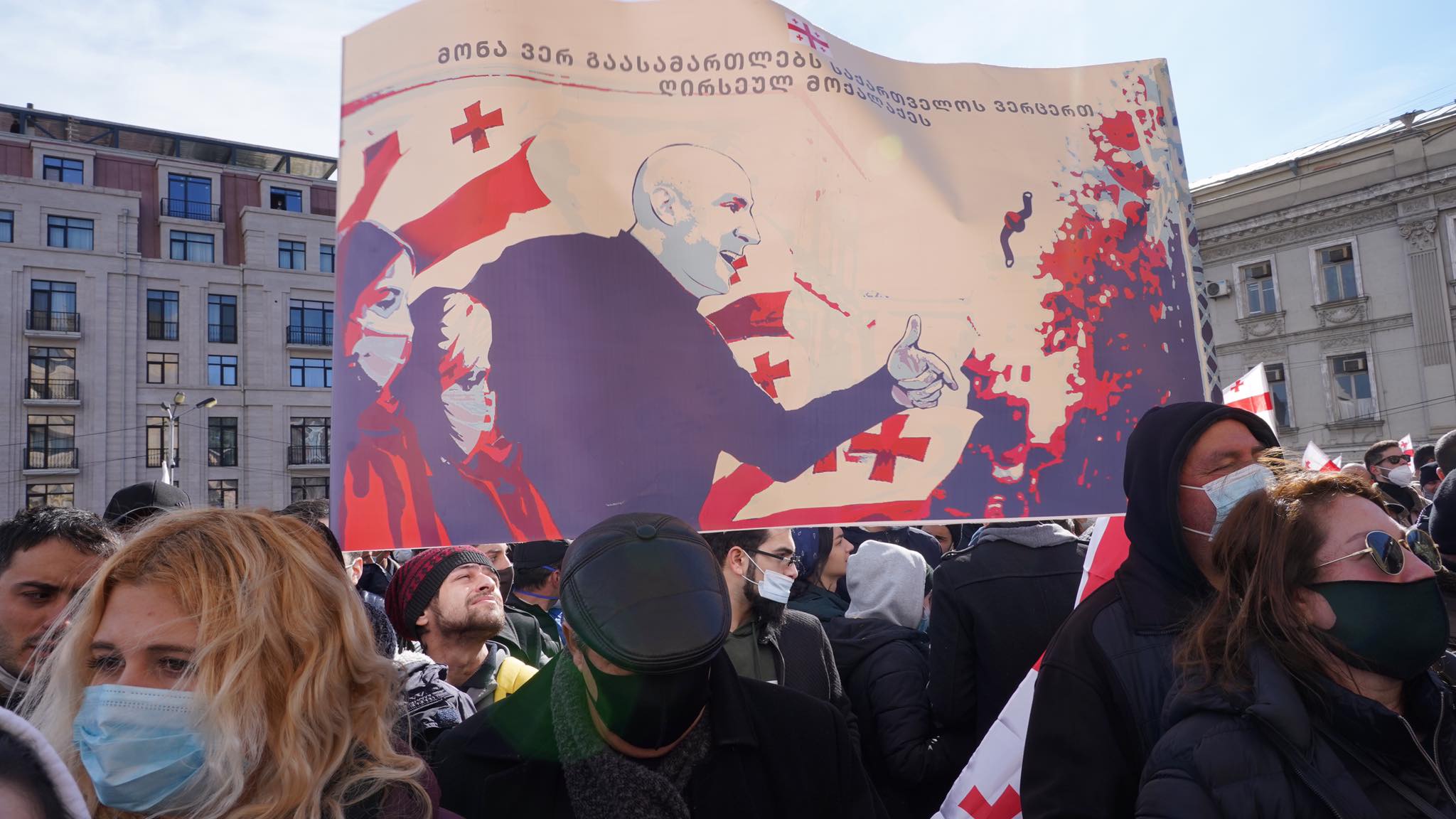Undermining democracy: Examples of how foreign influence laws impact democratic principles
Foreign influence law
April 3rd marked the reintroduction of the “Foreign Influence Transparency” bill by the Georgian ruling party “Georgian Dream” for the second time. Previously, in March 2023, the bill was passed in the first reading but was later withdrawn due to massive citizen protests.
In Russia, the “foreign agent” law has led to widespread discrimination and persecution of Russian activists. Similar processes are occurring in Kyrgyzstan, where authorities are enacting a foreign agent law, promising no persecution of “foreign representatives,” while simultaneously accusing eleven independent journalists of holding foreign currency.
Looking at global experiences with the introduction and implementation of foreign influence legislation, one can speculate that financial control over civil society representatives indicates the political regime’s evolution toward authoritarianism.
Here are examples of several countries that have enacted foreign influence laws.
Russia
The situation with Russia’s foreign agent law represents one of the worst-case scenarios. Since its introduction in 2012, the law has evolved into a tool used by authorities against civil society, media, and dissidents.
- Labor migration from Armenia to Russia: Causes and consequences
- “Crossing half the continent to cast a vote”: Georgians abroad want to participate in Georgia elections
- Suwalki, Poland – Russia could launch an attack on NATO precisely from here. Stories from the border town
Initially targeting only non-governmental organizations, the law was later expanded to include media outlets and even individuals. Recently, even VPN providers have been labeled “foreign agents.”
Individuals or organizations labeled “foreign agents” can be charged with various crimes, including extremism and posing a threat to the constitutional order. In 2024, authorities passed a law allowing for the confiscation of property belonging to those convicted under articles related to “discrediting the Russian armed forces,” advocating terrorism, and imposing sanctions.
Thus, Russia’s foreign agent law has become a powerful tool for suppressing opposition and restricting freedom of speech and expression.
Belarus
In 2011, under president Alexander Lukashenko’s leadership, the Belarusian government introduced amendments that established criminal liability for local non-governmental organizations (NGOs) receiving foreign grants and donations if it contravenes local legislation. They were also prohibited from keeping funds in foreign banks, with penalties for violation amounting to the received foreign funds.
In the same year, an amendment was made to the Criminal Code, expanding the definition of state treason to include any form of assistance to foreign states or organizations if it may harm Belarus’s national security. This further increased the risks for NGOs and civil society.
In recent years, Lukashenko has continued to tighten control over civil society. Decrees were issued in 2015 and 2020 that tightened reporting requirements for received foreign donations and restricted the types of assistance, prohibiting foreign funding in the fields of arts, scientific research, and human rights. The Department of Humanitarian Affairs gained more authority to supervise the use of foreign financing and the preference for projects approved by the state.
In January 2023, the Lukashenko regime secretly adopted a law on confiscating property from citizens of the country “in response to unfriendly actions.”
Egypt
In 2014, following president Abdel Fattah al-Sisi’s rise to power in Egypt, an active crackdown on opposition began. Thousands of members of opposition groups, activists, and representatives of non-governmental organizations (NGOs) were arrested, and some were even executed. Over time, the activities of civil organizations became practically impossible.
In 2017, a law came into effect, justified as necessary to protect national security and prevent the intervention of foreign charitable organizations. However, in practice, it allowed the government to fully control the activities of NGOs in the country.
According to the law, organizations must obtain permission from the administrative body to operate in Egypt and provide detailed information about their financing and activities. Non-compliance with the law carries the risk of legal prosecution and fines of up to $55,000 USD.
Activists condemned the law, considering it an attempt to restrict humanitarian activities. This also led to the suspension of multi-million-dollar military aid to Egypt by the administration of US president Donald Trump.
In 2019, under pressure from both local community and from abroad, the Egyptian parliament amended the law, replacing imprisonment with fines of up to $60,350 USD.
Kyrgyzstan
In 2024, the authorities of Kyrgyzstan passed a law largely modeled on the Russian approach.
Now, NGOs receiving international aid will have to provide additional reports and may undergo unscheduled inspections. They will also be included in a special register. These organizations will be required to accompany materials produced and/or distributed by them, including over the internet, indicating that these materials (information) are produced, distributed, and/or directed by a non-profit organization acting as a foreign agent.
As evident from numerous examples, the initiative of the “Georgian Dream” party to promote the bill on transparency of foreign influence in Georgia raises serious concerns about the fate of civil society. Global experience shows that such laws can be used to suppress opposition and limit citizens’ rights.
Nicaragua
In December 2020, the National Assembly of Nicaragua passed a law requiring any organization receiving international funding to register as a foreign agent with the Ministry of Internal Affairs and provide detailed reports on their expenses to the government monthly. The law also prohibits anyone registered as a foreign agent from running for state positions.
Already in February 2021, organizations involved in defending freedom of speech in the country, such as the local branch of the global writers’ association PEN International and the Chamorro Foundation, announced that they were suspending their activities in the country indefinitely.
Critics of the law argue that its passage is part of a broader campaign by the Ortega administration to pressure civil society and the opposition, which has intensified as the country approaches the November presidential elections. In 2018, during protests against social security reforms, more than 320 people were killed, and thousands were injured. The New York Times called it “the worst wave of political violence in Latin America in thirty years.”
— Zhenya Snezhkina, Mediaset




















